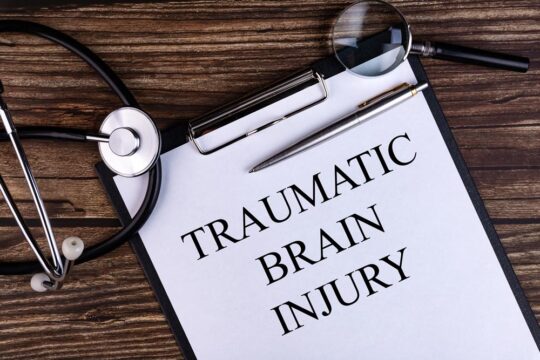Advertisment
What the papers say – weekly digest (22/12/23)

Your weekly digest of the top healthcare stories, covering news published from 18/12/2023 – 22/12/2023.
Daily Express
NHS patients are missing out on life-saving drugs, particularly for cancer. Britons face more ‘’access barriers’’ to new medicines than people in France, Germany and the US, a report by the Pharmaceutical Research and Manufacturers of America found. More than twice as many cancer patients in Germany and France can access cutting-edge treatments than in Britain, it said. For every 17,000 in the UK taking a newly-approved cancer drug, there were 36,000 in France, 39,000 in Germany and 234,000 in the US. The analysis was adjusted to account for population sizes. The Government’s Office for Life Sciences backs up the claim, revealing that just two thirds of 168 medicines approved for use in Europe between 2018 and 2021 were approved in England, down from 72% in the previous three years. The PHRMA report assessed all new drugs between 2017 and 2022, and revealed that the National Institute for Health and Care Excellence (Nice) approved just 13% with no restrictions. A further 26% were approved but limited the patients who could benefit. Less than three months ago, Nice rejected the drug Enhertu for breast cancer patients, which is available in the USand Europe, denying about 1,000 women up to two extra years of life. Prostate cancer drug abiraterone is available as a first treatment for men across Europe, Scotland and Wales, but not in England or Northern Ireland.
Having high levels of ‘’good’’ cholesterol could increase your danger of dementia. Researchers say that HDL cholesterol, normally beneficial to you, can have a downside. They believe high levels are the result of a metabolic disorder, not diet, and would largely affect those over 75, raising risk by around 42%. The findings by Monash University in Australia may help doctors to recognise a group of older patients in jeopardy. It is one of the largest studies of elevated HDL-C levels and dementia in initially healthy older people mostly over 70. Participants were from the Aspirin in Reducing Events in the Elderly (ASPREE) study a double-blind, randomised, placebo-controlled trial of daily aspirin in healthy older people. Over an average 6.3 years, participants with very high HDL-C at study entry were observed to have a 27% higher risk of dementia compared to participants with optimal HDL-C levels. Those aged 75 years and older also showed a 42% increased risk compared to those with optimal levels. The optimal level of HDL-C was generally beneficial for heart health, said the study in the Lancet Regional Health – Western Pacific.
All new mums in England will be offered more personalised postnatal support from their family doctor. Women are invited for a GP check-up six to eight weeks after giving birth to make sure they are recovering well. The new guidance sets out in more detail what should happen at these checks, including instructions to :’’Ask every woman, every time about her mental health. Never assume someone has already asked her.’’ Dr Claire Fuller, NHS medical director for primary care and the service’s lead GP in England, said: ‘’More than 600,000 women give birth every year in England, and so it is vital that they can get the right NHS mental health and physical support at what can be a hugely pressured moment in their lives. The guidance, produced in collaboration with the Royal College of GPs, tells doctors to ask about topics such as breastfeeding in a non-judgmental way. Further subjects include contraception, gestational diabetes and other medical conditions. And GPs should find out how women are healing physically by asking about their pelvic health. Medics are also instructed to look out for red flags such as a change in the new mum’s mental state, thoughts of self-harm or feeling that they are incompetent as a mother or estranged from their baby. Some 53,000 women have had specialist perinatal mental health support in the past year.
Tiger mosquitos could carry tropical diseases such as horrifying dengue fever into Britain due to climate change, scientists have warned. The UK Health Security Agency predicts a future in which heat and cold related deaths soar and new mosquito species invade carrying potentially deadly viruses. Asian tiger mosquitoes can carry the dengue, chikungunya and zika viruses. All cause severe fever, aches and joint pain. In a plausible worst-case scenario where temperatures rise by over 4 degrees, UKHSA warns the tiger mosquito could become established in most of England by the 2040s and 2050s. London could see regular transmission of dengue by 2060. Professor Dame Jenny Harries, UKHSA chief executive, said its report was to help policymakers and health chiefs prepare for possible impacts of climate change. The agency is already considering which vaccines may be needed and is working to ensure access to them. The UK reported above 40C for the first time last summer, resulting in almost 3,000 excess deaths. Analysis found temperatures were likely to rise until at least mid-century, regardless of de-carbonisation. By then, adults now of working age will be over 65, a group at risk from extreme weather. Heat-linked deaths could more than double by the 2030s and increase by over 1,000% by 2070, said the report. Meanwhile, cold-related deaths are also projected to rise before declining by the middle of the century. Heat-related mortality linked to climate change has been estimated to cost the NHS £6.8billion per year, and experts warned this could rise to £14.7billion annually in the 2050s.
A recovery plan for dentistry in England will be published ‘’in the new year’’ said Rishi Sunak, amid warnings the service is in peril. The Prime Minister said ‘’good progress’’ was being made in improving care but there was ‘’obviously more to do’’. The Nuffield Trust said NHS dentistry was in ‘’near terminal decline’’ and ‘’at its most perilous point in its 75-year history’’. The think tank said access problems and a lack of funding caused a ‘’widespread crisis’’. But the PM told MPs that £3 billion of funding was improving things.
Daily Telegraph
Dementia is the ‘’biggest health crisis of our time’’’, a charity has warned, as it called for the NHS to approve life-changing drugs. Last year 74,261 people died from dementia compared with 69,178 in 2021, according to analysis by Alzheimer’s Research UK. The charity has called for any drugs ‘’deemed safe and effective’’ to treat the disease to be made available on the NHS as soon as possible. There have been major breakthroughs in Alzheimer’s research this year. In May, watchdogs began assessing the safety of lecanemab which slows cognitive decline. In the same month, trials of donanemab suggested it could be even more powerful, slowing the condition by a third. Last month, Alzheimer’s Research UK urged the National Institute for Health and Care Excellence (Nice) to change the way it works and to take account of the £10 billion cost of dementia to the economy. But, after examining its processes, a report from Nice’s Health Technology Assessment Innovation Laboratory concluded that it should retain its current method.
Exercising reduces the risk of breast cancer in younger women by up to 10 per cent, a study has found. Researchers found that the most active premenopausal women were a tenth less likely to develop breast cancer than the least active. Breast cancer is more common in women over 50 who have gone through the menopause, but it can often be more aggressive and difficult to treat when it does develop in younger patients. Around 5,000 women under 45 are diagnosed with breast cancer each year. During the study, 10,231 women yet to go through the menopause were diagnosed with breast cancer. Experts from the Institute of Cancer Research in London analysed 547,000 women over an average of almost 12 years, tracking their physical activity levels and whether or not they developed breast cancer. They concluded that leisurely exercise, which included walking or cycling among other sports, at least three times a week outside of work reduced the risk of breast cancer. It said the most active 10 per cent were a tenth less likely to develop breast cancer than the least active 10 per cent. However, the researchers said there was no notable benefit from spending longer on or increasing the intensity of exercise.
Fifty-four people have died in the past six months after taking ‘’Chinese-made’’ opioids that are 300 times stronger than heroin. Post-mortem toxicology reports revealed the deaths were linked to synthetic opioids called nitazenes. The National Crime Agency (NCA) believes the drugs, which are up to 10 times stronger than fentanyl, are being posted to Britain from China. The Government is set to classify 15 new synthetic opioids as Class A drugs. Fentanyl, another synthetic opioid manufactured in China, has been the leading cause of the opioid crisis in the United States, killing 75,000 people last year. Nitazenes were first developed in the 1950s as a painkiller but have never been licensed for use because of how strong and addictive they are.
Behaving arrogantly towards a partner could be an early warning sign of domestic violence, a study suggests. Several ‘’red flags’’ that both preceded and predicted ‘’intimate partner violence’’ have been identified. These include arrogance, acting in an entitled manner, reacting negatively to being told ‘’no’’ and disregarding a partner’s reasoning if it does not fit their own narrative. A team from Western University in Canada, presented 147 participants with a list of 200 abusive and non-abusive thoughts, feelings, and behaviours based on a review of existing research. Participants then indicated how frequently each had occurred since they started dating their partner. In a second study, with 355 participants, researchers identified warning signs that predicted violence six months later. Although the given warning signs were shown to predict violence researchers said it does not mean that all people who notice them will experience abuse or that these indicators precede all violent acts. The results were published in the journal Social Psychological and Personality Science.
Saying no to party invitations might not be as bad as you think, a study has suggested. According to the findings, which may come as welcome news to those feeling overwhelmed by events and commitments at this time of year, rejecting an invite is not always seen as rude. More than three quarters (77 per cent) of people in the study at West Virginia University, said they had accepted an invitation to an activity they did not want to attend because they were worried about the consequences of declining. The study found that people who imagined turning down their friend’s invitation often believed it would negatively affect their relationship. They were more likely to say that their friend would be angry, disappointed and unlikely to invite them to future events than people who imagined being rejected rated themselves. The research is published in the Journal of Personality and Social Psychology.
The Guardian
The NHS is facing a crisis as the latest junior doctors’ strikes compound winter pressures, health bosses have warned. Thousands of medics will abandon wards for three days from 7am today (Thursday), followed by six days from January 3. NHS chiefs raised concerns that no national derogations – exemptions from strike action for essential services – had been agreed. Bosses at St George’s, Epsom and St Helier’s emergency departments in London said they were facing a ‘’nightmare before Christmas’’. More than 560 people attended the three A & E departments with winter related illnesses in the week to December 10. Nurses, consultants and specialist doctors have all either settled or paused strikes, leaving junior doctors increasingly isolated. Health secretary Victoria Atkins said she had made ‘’good progress’’ before the British Medical Association announced new strike dates. But the BMA junior doctors committee said it was still awaiting a ‘’final offer’’ from the Health Secretary.
Hospital admissions linked to obesity have doubled in six years to more than 3,000 people a day, according to NHS figures that highlight the extent of Britain’s weight problem. Obesity is exacerbating illness or complicating the treatment of people ranging from expectant mothers to patients with arthritis and cancer patients. There are three times as many admissions linked to obesity as there are to smoking. More than 20 children a day are admitted because of obesity, a figure that has also doubled in recent years. Ministers have been accused of failing to get a grip on a problem that is damaging society and holding back the economy after the government shelved tough anti-obesity measures. People in poorer areas are twice as likely to be taken into hospital with obesity as those in the richest areas, in the latest evidence that weight issues are hampering efforts to boost the labour market. Figures published this month showed the cost of obesity to be an estimated £98 billion a year, which included £19 billion of NHS treatment and economic productivity losses of £15 billion.
Artificial intelligence is being rolled out to match NHS hospital patients with home carers, meaning they can be discharged five times faster than before. The software, developed by the care provider Cera, contains a database of thousands of social care staff including their availability, location, specific qualifications and language. NHS staff will upload details of patients needing social care and within minutes, the software finds and notifies the most suitable people available via an app. It allows patients to be sent home straight away, with a full care package and visit timetable in place. The technology is seen as vital to tackling delayed discharges, or bed-blocking, which leaves 13,000 frail and elderly patients stranded in hospital each day. Cera launched the AI tool last month in five NHS regions, covering a population of a million, replacing a laborious method where ‘’care co-ordinator’’ staff manually review each patient’s notes and try to match them with carers. Dr Ben Maruthappu, a former A & E doctor who is founder and CEO of Cera, said that the technology was a ‘’big leap’’ forward in transforming social care and pivotal in alleviating NHS pressures by freeing up beds. Cera employs more than 10,000 staff, delivering 50,000 appointments a day.
It can sometimes feel as if parenthood is taking years off your life – research now suggests that it really might. A study has found that genes which nudge people towards having more children also tend to push them towards an early death. The effects on longevity were small compared with environmental factors, including medical advances, but the findings may offer support to one theory of ageing. One potential explanation is that mutations which contribute towards faster ageing and earlier deaths can be favoured by natural selection if they also lead people to reproduce at an earlier age or to produce more offspring. A study of data on about 276,400 members of the UK Biobank project found that reproduction and lifespan were genetically strongly negatively correlated, meaning that genetic mutations which promoted reproduction tended to shorten lifespan. People carrying mutations that predispose them to having relatively high numbers of children had a lower probability of living to 76 compared with those carrying mutations that predisposed them to lower reproductive rates. Professor Jianzhi Zhang, of the University of Michigan, who led the study, said: ‘’Natural selection cares little about how long we live after the completion of reproduction.’’ The findings were published in the journal Science Advances.
Ultra-processed foods are hijacking children’s taste buds and ‘’robbing them’’ of the experience of learning to eat different foods, according to campaigners and TV chefs. Celebrity cooks and authors including Thomasina Miers, Bee Wilson, Yotam Ottolenghi, Kimberley Wilson and Hugh Fearnley-Whittingstall have written to Rishi Sunak to say that exposure to ultra-processed foods is ‘’blindfolding’’ children to flavour and texture, posing long-term risks to their health. Ultra-processed foods such as breakfast cereals, mass-produced bread, crisps, cakes and biscuits, are often high in salt and sugar, contain additives, emulsifiers and preservatives, and are typically high in calories but lack fibre and nutrients.
The Times
Self-testing kits to detect whether a drink has been spiked with drugs could be rolled out across the country as part of a new crackdown on the crime. But although James Cleverly, the home secretary, called spiking a ‘’perverse’’ crime, the measures stopped short of making it a standalone offence. In a new set of measures announced today, funding will be given for research into kits that could be used by venues and police forces. Training will be provided to help door staff spot people who spike drinks, while the police will run targeted operations during key weeks of the year. This month free test kits that can detect whether drugs such as GHB and ketamine have been added to a drink were handed out in bars in Shrewsbury. The test strips change colour when they are dipped in a spiked drink. A similar scheme has been implemented in Worksop. Nearly 5,000 needle and drink spiking incidents were reported to police in England and Wales in the 12 months to September 2022, according to figures supplied by the National Police Chiefs Council. (NPCC).
Half of NHS hospitals close their operating theatres at the weekend meaning that routine care grinds to a halt, new figures show. The number of elective surgeries such as hip replacements falls by 80 per cent on Saturdays and Sundays, hampering efforts to tackle the NHS waiting list that has grown to 77 million. The figures were obtained by the Labour Party, which has pledged to increase weekend working in the NHS to help cut the backlog. Last week The Times Health Commission reported that Guy’s and St Thomas’ Hospital in London was performing an entire week’s operations in a single day at weekends. The pioneering scheme involves two operating theatres running side by side, with surgeons ‘’bouncing between them’’. Sir Keir Starmer, the Labour leader, called the model ‘’trailblazing’’ and will visit a hospital in Yorkshire today (Monday) that is operating a similar scheme. Labour said that it would pay staff to run evening and weekend clinics, which would be funded by raising £1.1 billion by abolishing the non-dom tax-status.
The old adage that ‘’doctor knows best’’ is often wrong and patients must be given more say in their diagnosis, according to new research. A study by the University of Cambridge found that a dismissive attitude means that doctors sometimes fail to listen to patients, who end up feeling ‘’degraded and dehumanised’’. Researchers questioned 676 patients and 400 doctors about their experiences diagnosing lupus, an incurable autoimmune disease that is notoriously tricky to diagnose. The study found that doctors ranked patients’ self-assessments as the least important of 13 types of evidence used in diagnoses. Doctors ranked their own assessments as the most important factor. The study also found that male doctors were more likely to believe that patients were over-playing their symptoms. Meanwhile, 46 per cent of the patients said that they were never asked for their own self-assessment of the disease, even though they ‘’researched’ their own condition to a very high level’’ and ‘’worked hard to understand what is going on with their own body’’. The research was published in The Journal of Rheumatology and funded by the Lupus Trust and Lupus UK.
The psychedelic compound in magic mushrooms eases depression, scientists suggest following a survey. The compound psilocybin also helps people being treated for cancer overcome depressive symptoms, researchers said. They added that results from clinical trials supported further study of the psychedelic substance found in magic mushrooms of the psilocybe genus. The findings, published in the journal Cancer, indicated that people treated with psilocybin spoke highly of the therapy at the end of the trial. Scientists said the drug, which is subject to legal restrictions in the UK, caused ‘’alterations’’ to mood, cognition and perception by binding to a receptor in the brain. The latest trial in the United States involved 30 cancer patients at Sunstone Therapies in Rockville, Maryland. They each received a 25mg dose of synthesised psilocybin as well as a session with a therapist and group therapy. Dr Manish Agrawal, the lead author, said half the participants lost their depressive symptoms after a week. ‘’This was a small study,’’ he said. ‘’More research needs to be done but the potential is significant and could help millions of patients with cancer.’’
Victoria Gray’s life changed when she woke up one morning and experienced something utterly unfamiliar – no pain. Months earlier, Gray, 38 had become the first person to receive an experimental treatment for sickle cell disease, which affects about 17,000 people in the UK. It was the first therapy for any condition to involve editing a patient’s DNA using a recently developed biological tool known as Cispr-Cas9 – and it had worked. From infancy, Gray’s body had produced abnormal red blood cells. Sticky and rigid, these sickle-shaped cells had clogged her blood vessels and damaged her organs. Some with the disease die in childhood, while others suffer several very painful episodes each year. The only long-term treatment had involved a bone marrow transplant that required a suitable donor and carried a risk of rejection and death. The therapy given to Gray, who lives in Mississippi, was approved by the UK medical regulator last month and is fundamentally different from anything that had gone before. Billions of her bone marrow stem cells, which produce red blood cells were harvested and their DNA was ‘’edited’’ in a laboratory. A single gene was disabled so that her blood cells would produce a substance known as foetal haemoglobin, which the body usually stops making in infancy and which reverses the sickle cell symptoms. The modified cells were injected into an artery and found their own way back into her bones. The treatment reversed a disease that had made Gray’s life a succession of hospital stays, blood transfusions, fatigue and prescriptions for powerful painkillers. The new treatment, Casgevy, was developed by two American biotech companies, CRISPR Therapeutics and Vertex. Earlier this month the US Food and Drug Administration approved it for patients with sickle cell disease.





